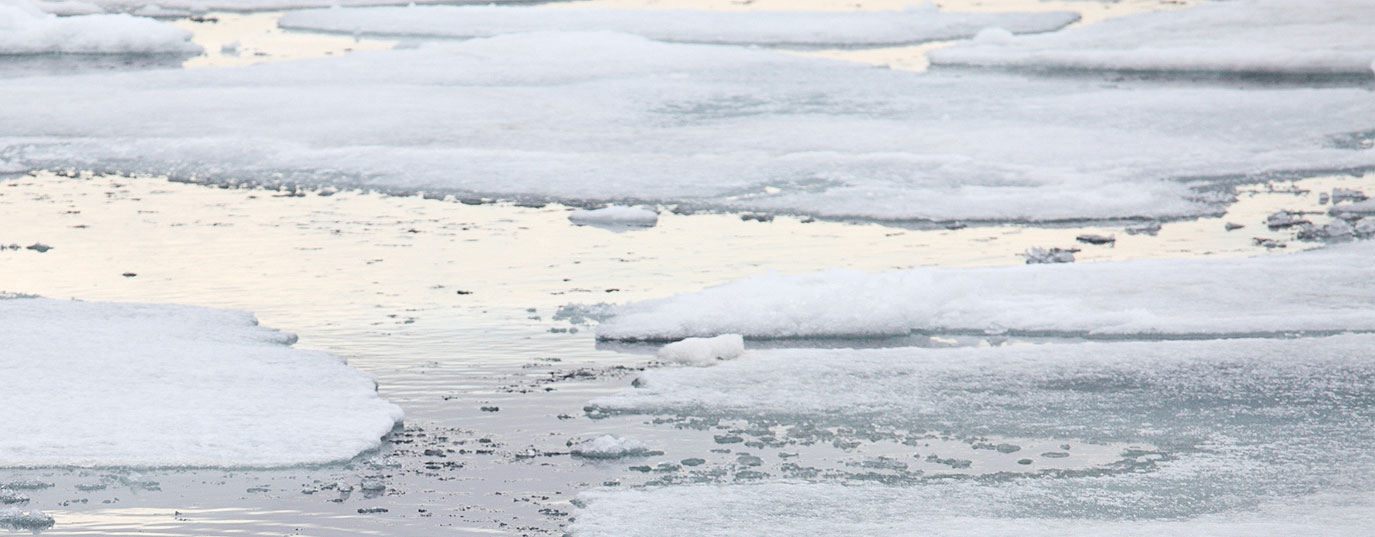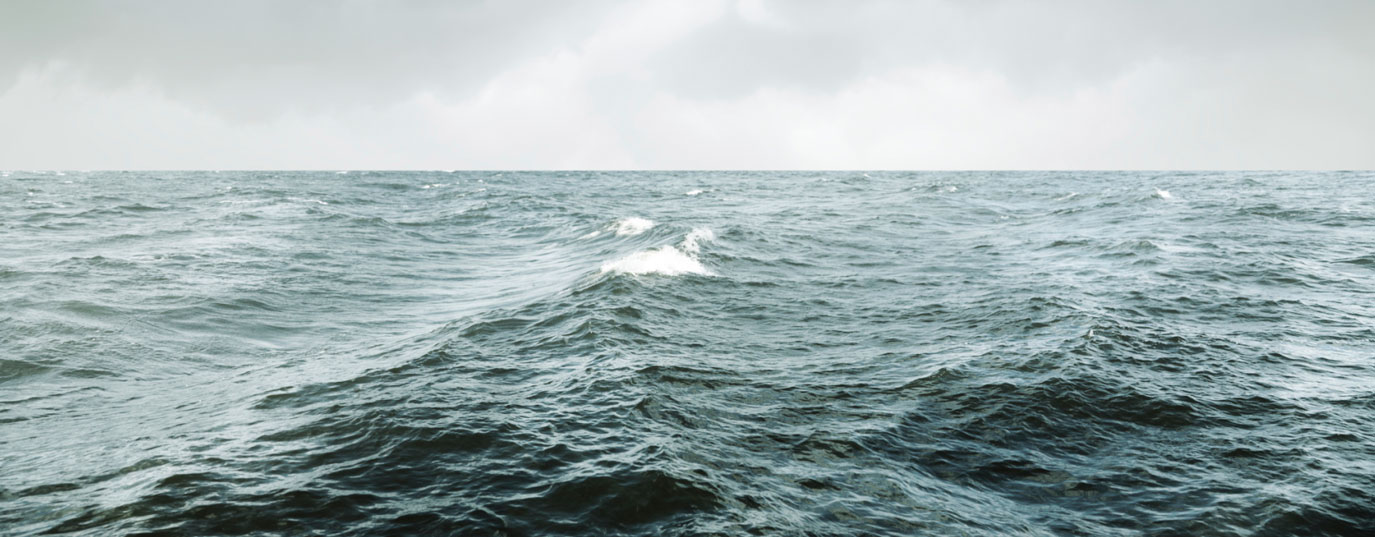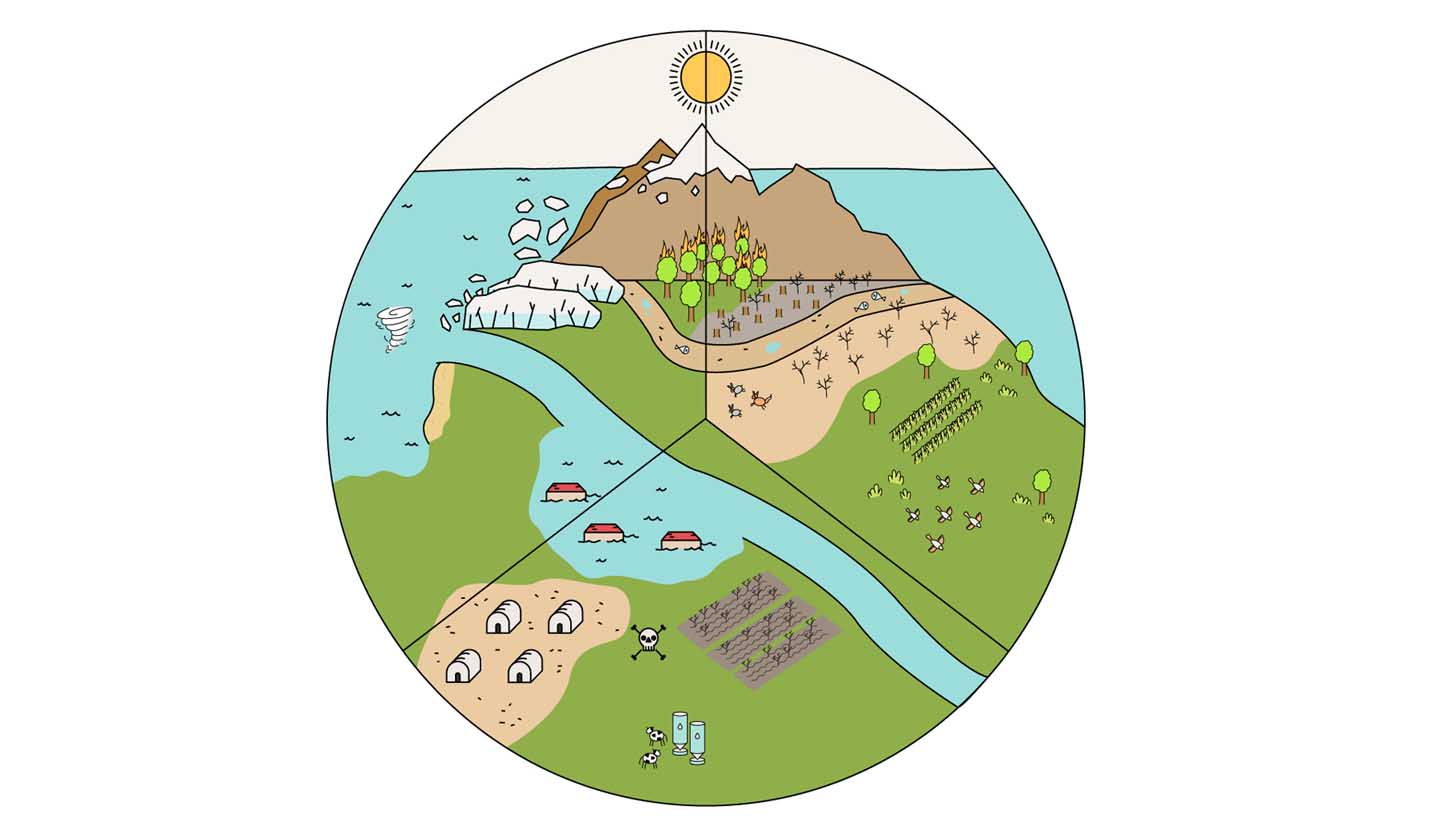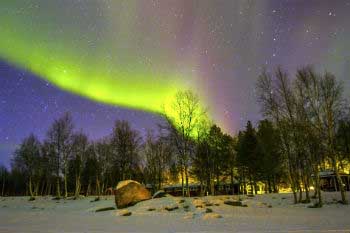Countries at risk of disappearing due to climate change
Global warming and rising sea levels seriously threatens the survival of many SIDS (small island states). We compile some of them in this gallery
Countries at risk of disappearing due to climate change
Climate change poses a major threat to the whole planet, but there are certain geographical areas which are more exposed to the dangers of global warming.
What are SIDS?
These countries are part of the so-called SIDS (Small Island Developing States), which by its nature will be the first to suffer the consequences of climate change and are in danger of disappearing.
These territories, 52 according to the United Nations Department of Economic and Social Affairs mostly share the fragility of a subsistence economy based on tourism, the difficulty in communications and infrastructure development, lack of protection against natural disasters and dependence on international trade.
Here are nine of these islands at risk of disappearing due to global warming.
Kiribati
The Republic of Kiribati is spread over three million square kilometers northeast of Australia. It is the first populated area of the world to start every new day and year. It was discovered by the Spanish in the 16th century and achieved independence from Britain in 1979.
Its main threat is the sea level rise. With an altitude of only three meters high, the water rises at a rate of 1.2 centimeters a year (four times faster than the global average), which makes Kiribati the most likely country to disappear due to rising sea levels in the forthcoming years.
Territory composition: 33 coral atolls and one island in the Pacific Ocean
Capital: South Tarawa
Population: 102,351 inhabitants in 2013
The Maldives
The Republic of Maldives occupies an area of 298 square kilometers south of India. It was a Portuguese, Dutch and British colony, and gained independence in 1965.
The current sea level rise is the main threat to this country, which is among the lowest in the world with a point of maximum height of 2.3 meters and the lowest average altitude of the world: just 1.5 meters.
Territory composition: 1,200 islands in the Indian Ocean
Capital: Malé
Population: 345,023 inhabitants in 2013
Vanuatu
The Republic of Vanuatu is the world's most vulnerable country to natural disasters according to the United Nations. With just over 12,000 square kilometers, the archipelago was discovered by Spanish explorers in 1606 and in 1980 was born as a new state after obtaining independence from Great Britain and France, who shared its sovereignty.
Along with the main threat for SIDS, -the sea level rise-, Vanuatu also has a high rate of cyclone formation. In fact, in March this year, Cyclone Pam deteriorated 90% of the buildings in the capital. This island could be desappearing due to global warming.
Territory composition: 83 volcanic islands in the South Pacific
Capital: Port Vila
Population: 207,000 inhabitants in 2005
Tuvalu
The situation of Tuvalu perfectly defines the injustice of climate change: the least polluting country is among the most affected by global warming. Because of its low average height above sea level, Tuvalu is a victim of the lack of boundaries of global warming: emissions of other countries directly affect others.
Discovered by the Spanish around 1568, the archipelago of Tuvalu gained independence from Britain in 1978.
Close to Vanuatu, Tuvalu also suffered Cyclone Pam and is a candidate to sink because of global warming, which makes its authorities very demanding with the Kyoto Protocol compliance.
Territory composition: Four coral reefs, five atolls and three islands in the Pacific Ocean
Capital: Funafuti
Population: 9,876 inhabitants in 2013
Solomon Islands
This little piece of paradise almost of 30,000 square kilometers was discovered by Spanish explorers in 1568, and got its independence from Britain in 1978.
For already more than five years warnings have been made about their complicated survival as global warming could plunge the country little by little under the ocean in the next decades. Sinking countries are a serious threat.
Territory composition: 990 islands spread in two archipelagos (Solomon and Santa Cruz) in the Indian Ocean
Capital: Honiara
Population: 561,231 inhabitants in 2013
Samoa
The Independent State of Samoa, with less than 3,000 square kilometers, had contact with European settlers in the early 18th century, and in the 19th century the United States, Germany and the United Kingdom claimed parts of its territory. It became independent from New Zealand in 1962.
The biggest challenge for Samoa is the disappearance of coral reefs caused by ocean warming. These natural barriers are the walls of protection against violent waves, which find no no opposition and are eroding and invading the coasts.
Territory composition: Seven islands in the South Pacific
Capital: Apia
Population: 190,372 inhabitants in 2013
Nauru
The Republic of Nauru is a territory of just over 20 square kilometers whose history is not widely known, since well into the 19th century was not interesting for the European powers. It was discovered by the British crown and after passing through German, Dutch and Australian hands, finally gained independence in 1968.
Its main threat is the current sea level rise due to its low average height. If the ice melting at the poles continue, the survival of the small population of Nauru in this area will be greatly endangered in the coming years.
Territory composition: One atoll in the Central Pacific
Capital: Yaren
Population: 10,084 inhabitants in 2011
Fiji Islands
Another tourist destination paradise par excellence is the Republic of Fiji. Its territory extends over an area of 1.3 million square kilometers, colonized by Southeast Asians before Europeans arrived in the 17th century. Fiji belonged to British sovereignty until 1970, when it declared independence.
Besides the usual problem of sea level rise, Fiji also faces the constant threat of inclement weather. In 2009 it rained for some days in a row with the result of 19 people dead and the evacuation of 9,000 people, as well as a significantly damage in the sugar cane plantations and tourism infrastructure, its two main sources of income.
Territory composition: 330 islands in the Pacific Ocean
Capital: Suva
Population: 881,065 inhabitants in 2013
Marshall Islands
The Republic of the Marshall Islands is named after Captain John Marshall, who discovered them in 1788. It has an area of 181 square kilometers and gained independence from the United States in 1990.
In this tiny state of Micronesia, the impending disappearance under water by the sea level rise is not a threat, it is a fact that has already begun and it is perfectly visible in some of its atolls, for example in its capital, Majuro, where tracts of land usually in sight have been swallowed by the sea.
Territory composition: 29 atolls and five islands in the Pacific Ocean
Capital: Majuro
Population: 70,983 inhabitants in 2014
Sources: United Nations, The Guardian, RT, El Economista and Yahoo Noticias.









